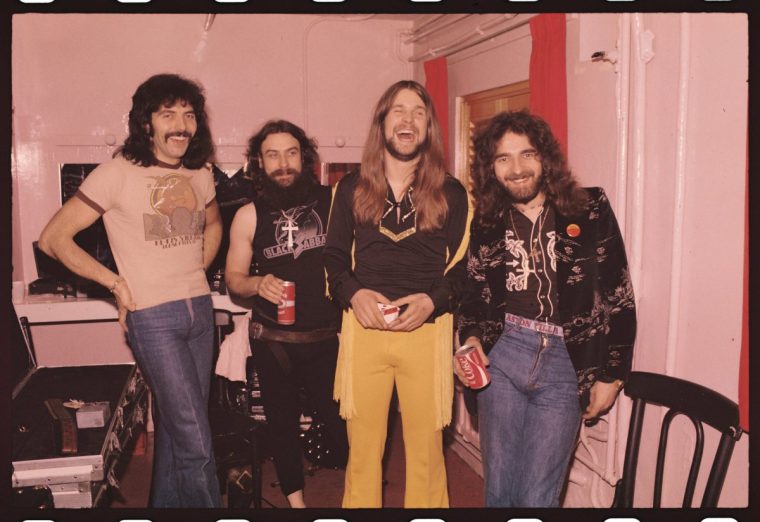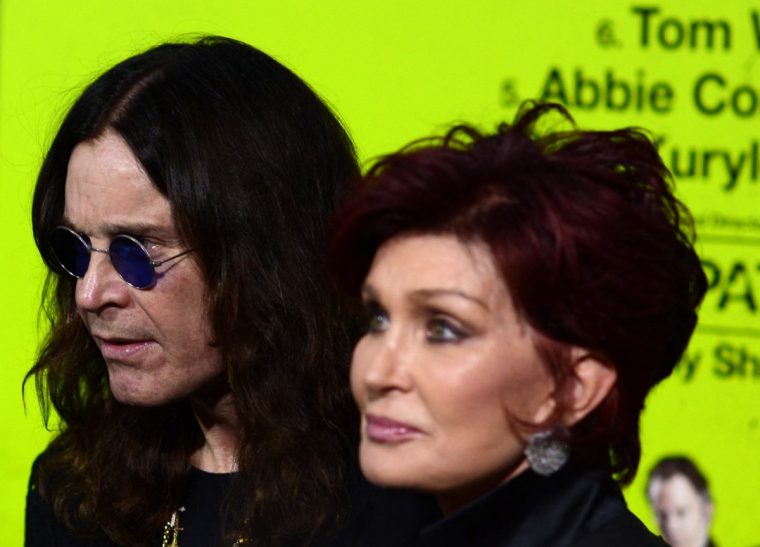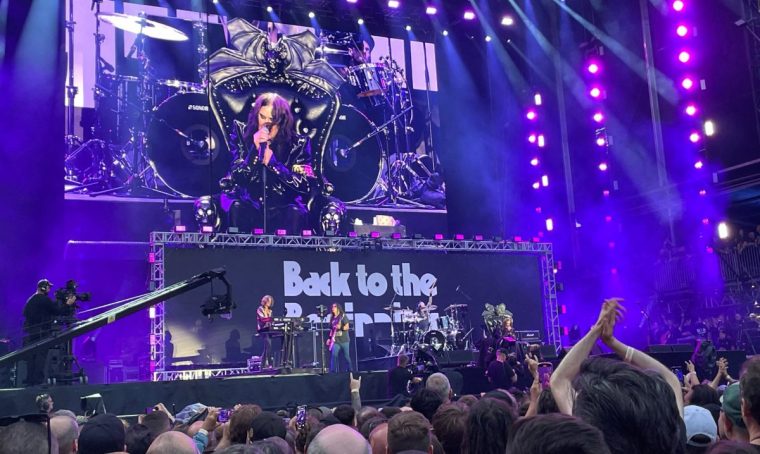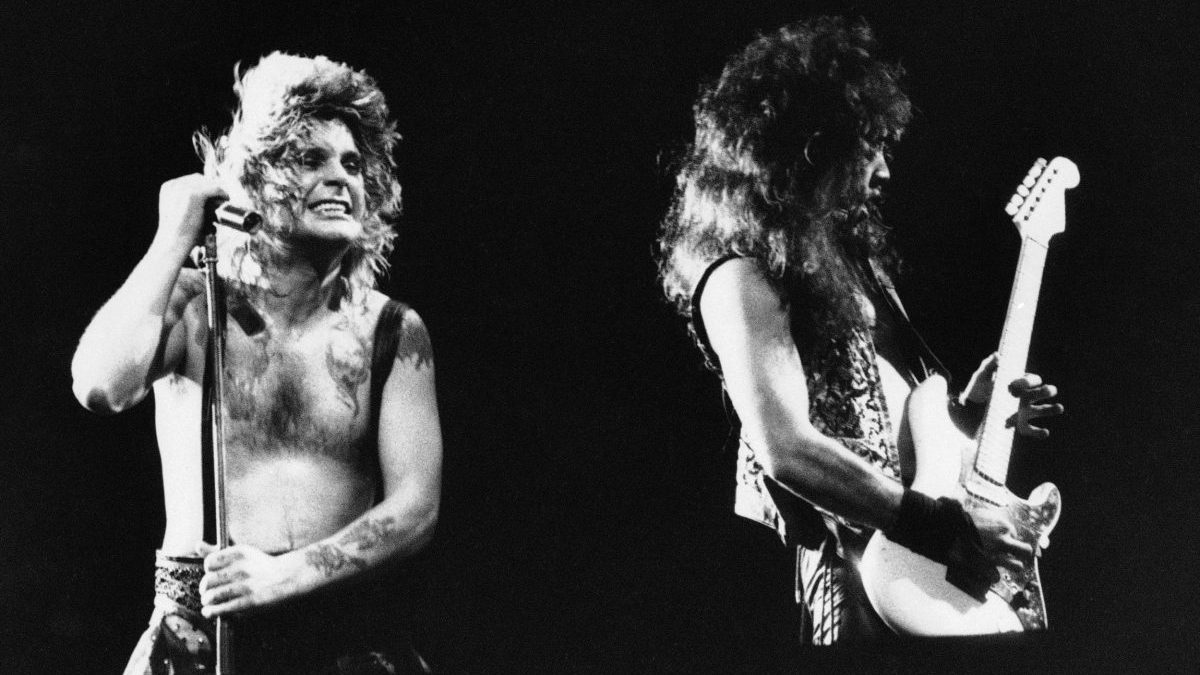How Black Sabbath’s sound came out of the dark metallic clang and hammer of the UK’s second city
If the Beatles created Merseybeat and defined the sound of the 1960s, Ozzy Osbourne and his band Black Sabbath allied the industrial noise of Birmingham to music and invented an entirely new genre – heavy metal.
Osbourne was born in Aston, barely a back garden away from Aston Villa FC – a football club he loved and where he would end his musical career just three weeks ago in a final concert at which Black Sabbath reunited.
Black Sabbath’s sound came out of the dark metallic clang and hammer of the UK’s second city – quite literally, in that Osborne had been working in a factory in 1968 when he teamed up with former school friend Geezer Butler and Tony Iommi and Bill Ward to create a group.
Initially, they were called Earth Blues Company – but later changed to Black Sabbath after Osbourne wrote a song with that title, having been inspired by a Boris Karloff film of the same name.
Earth Blues Company had been more soulful, but the name change brought a much darker, harsher vibe – at a time when the peace and love of the 1960s had become something much darker in the wake of the stabbing at the Altamont Free Festival stabbing of Meredith Hunter.
 Black Sabbath backstage at London Music Festival ’73 at Alexandra Palace L-R Tony Iommi, Bill Ward, Ozzy Osbourne, Geezer Butler. (Photo credit: Watal Asanuma/Shinko Music/Getty Images)
Black Sabbath backstage at London Music Festival ’73 at Alexandra Palace L-R Tony Iommi, Bill Ward, Ozzy Osbourne, Geezer Butler. (Photo credit: Watal Asanuma/Shinko Music/Getty Images)
Black Sabbath’s sound, epitomised in songs such as ‘Paranoid’ and ‘War Pigs,’ struck a chord not only in the UK but also in the US. Their albums sold in the millions, and their success put them at the very forefront of heavy metal.
Their albums did not just touch on themes of war and societal breakdown – they smashed into them.
Very few bands in music history can quite so directly claim to have inspired an entire music genre. In their wake came Iron Maiden; Guns ‘n’ Roses; Nine Inch Nails; Slipknot.
But in Osbourne’s case, the music was only half the story. He was known for his showmanship, powered by extraordinary amounts of alcohol and drugs. The most excessive of this behaviour came in the early 1980s, after he was fired by the band and went solo in 1979.
His album Blizzard Of Ozz, released in 1980, was a massive hit and featured two of his most revered songs, ‘Crazy Train’ and ‘Mr Crowley’. But on the subsequent tour, he bit the head off a bat on stage at a gig in Des Moines, Iowa. The year before, he had stunned CBS Records executives by similarly decapitating a dove at their offices.
 Ozzy Osbourne and his wife and longtime manager, Sharon Osbourne (Photo credit: Joe KLAMAR / AFP)
Ozzy Osbourne and his wife and longtime manager, Sharon Osbourne (Photo credit: Joe KLAMAR / AFP)
He also notoriously urinated on the cenotaph commemorating the dead at the Alamo – while wearing one of his wife Sharon’s dresses.
It was also around this time that – according to Motley Crue’s bassist Nikki Sixx, with whom he was touring – Osbourne snorted a line of ants up his nose.
But the behaviour only added to Osbourne’s legend. He ultimately made 11 solo albums, even appearing at Live Aid.
During the 1990s, his fame began to wane, in the wake of grunge – another low-fi, hard-edged sound centred on a very certain city, this time Seattle.
But in the 2000s, he found a whole new audience when he, Sharon and their children Jack and Kelly agreed to have their lives documented on MTV show The Osbournes.
The show was a massive hit. By now in his 50s, Osbourne became a star amongst young people all over again, his Birmingham-twanged shout of “Sharaaaaan!” the stuff of the playground as much as parody shows. He even got an extended part in an Austin Powers movie off the back of it.
 Unable to stand due to Parkinson’s disease, Osbourne performed Black Sabbath’s farewell show from a black throne (Photo credit: REUTERS/Sachin Ravikumar)
Unable to stand due to Parkinson’s disease, Osbourne performed Black Sabbath’s farewell show from a black throne (Photo credit: REUTERS/Sachin Ravikumar)
The show equally made Sharon a star – to the extent she was made a judge on The X-Factor at its zenith.
Osbourne was once again at the vanguard of a new genre – this time, the reality TV show.
He and Sharon briefly separated in 2016, but reunited in 2017 and renewed their vows.
Having struggled with illness and injury through the 2010s, in 2024, Osbourne was inducted into the Rock & Roll Hall of Fame for a second time – one of the few to be given the honour.
And who would have thought it would be Ozzy Osbourne, who had endured such a long battle with drink and drugs, who would be able to – loudly – plan and give a proper goodbye to his fans, in his final live performance earlier this month at Villa Park, performing his last set from a large black throne.
Birmingham’s industrial legacy may now be gone, but as long as there is heavy metal, it will always be a part of the sound of the world – thanks to Ozzy Osbourne.
